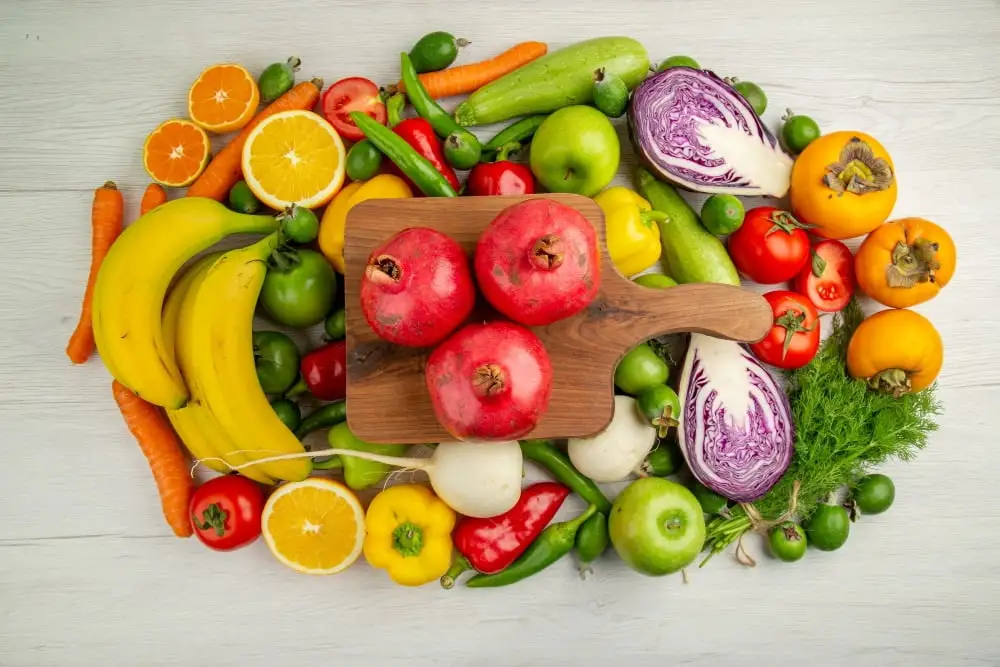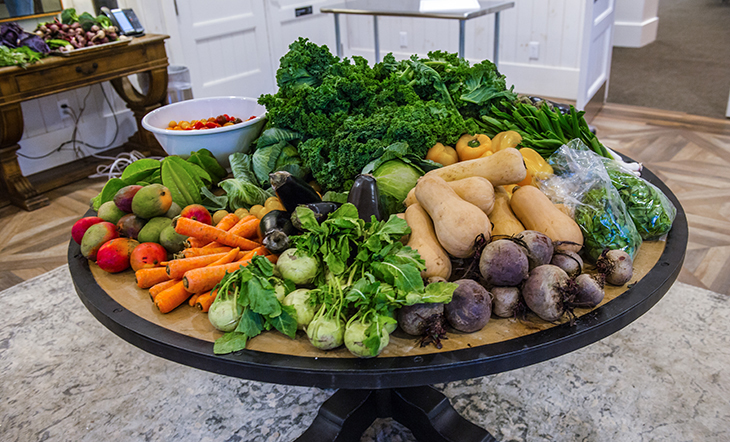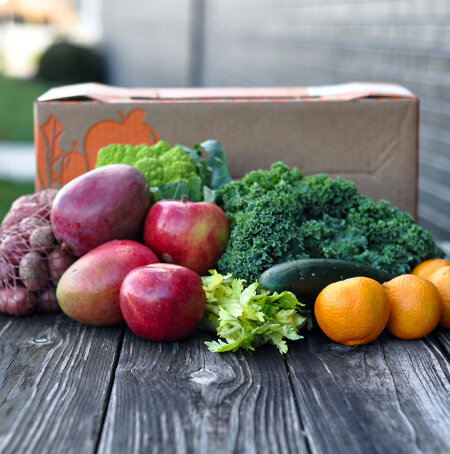How to Prepare Delicious and Nutritious Harvest Recipes
“Discover delicious and sustainable recipes with Hungry Harvest! Explore our collection of innovative and mouthwatering dishes made from rescued produce. From hearty salads to flavorful mains, our recipes celebrate reducing food waste while satisfying your cravings. Join the culinary adventure and make a positive impact on the planet, one tasty meal at a time with Hungry Harvest recipes.”

Introduction
Welcome to our comprehensive guide on preparing delicious and nutritious harvest recipes. At [our website], we strive to provide you with the best culinary experiences that will satisfy your taste buds and promote a healthy lifestyle. In this article, we will share a variety of mouthwatering harvest recipes that are not only packed with flavors but also rich in essential nutrients. Let’s dive in and discover the delights of harvest-inspired cooking!
Embracing the Bounty of the Harvest Season
As the harvest season unfolds, nature offers us an abundance of fresh produce, brimming with vibrant colors and delightful flavors. This is the perfect time to celebrate the harvest and enjoy the bountiful offerings of the earth. Whether you have your own garden or frequent farmers’ markets, there are numerous ingredients you can incorporate into your recipes to create meals that are both delicious and nutritious.
Exploring Seasonal Ingredients
Apples: A Versatile Harvest Gem
Apples are a quintessential harvest fruit and a versatile ingredient in a wide range of recipes. From sweet desserts like apple pie to savory dishes such as apple-stuffed pork chops, there is no shortage of delicious options. Apples are packed with fiber, vitamins, and antioxidants, making them a nutritious addition to your diet.
Pumpkins: The Iconic Symbol of Harvest
Pumpkins take center stage during the harvest season, with their iconic appearance and rich, earthy flavor. From pumpkin soups and roasted pumpkin salads to pumpkin bread and pies, this versatile ingredient offers endless possibilities. Packed with vitamins A and C, potassium, and fiber, pumpkins provide both great taste and nutritional benefits.
Harvest Recipe Ideas
Roasted Butternut Squash Salad
Ingredients:
- 1 medium butternut squash, peeled and cubed
- 2 tablespoons olive oil
- 1 teaspoon dried thyme
- Salt and pepper to taste
- 4 cups mixed salad greens
- ½ cup dried cranberries
- ¼ cup crumbled feta cheese
- ¼ cup toasted pecans
- Balsamic vinaigrette (for dressing)
Instructions:
- Preheat the oven to 400°F (200°C).
- In a large bowl, toss the butternut squash cubes with olive oil, dried thyme, salt, and pepper.
- Spread the seasoned squash evenly on a baking sheet and roast for 20-25 minutes or until tender and slightly caramelized.
- In a salad bowl, combine the mixed greens, dried cranberries, feta cheese, and toasted pecans.
- Add the roasted butternut squash to the salad bowl and toss gently.
- Drizzle with balsamic vinaigrette and serve.
Hearty Harvest Stew

Ingredients:
- 1 tablespoon olive oil
- 1 onion, diced
- 2 cloves garlic, minced
- 2 carrots, peeled and chopped
- 2 parsnips, peeled and chopped
- 2 potatoes, peeled and cubed
- 1 cup butternut squash, cubed
- 1 cup corn kernels
- 1 cup green beans, trimmed and cut into bite-sized pieces
- 4 cups vegetable broth
- 1 can diced tomatoes
- 1 teaspoon dried thyme
- Salt and pepper to taste
Instructions:
- Heat the olive oil in a large pot over medium heat.
- Add the onion and garlic, and sauté until they become translucent and fragrant.
- Add the carrots, parsnips, potatoes, butternut squash, corn, and green beans to the pot.
- Stir in the vegetable broth, diced tomatoes, dried thyme, salt, and pepper.
- Bring the mixture to a boil, then reduce the heat to low and simmer for 30-40 minutes or until the vegetables are tender.
- Adjust the seasoning if needed and serve hot.
Conclusion
With the arrival of the harvest season, we have the opportunity to create culinary masterpieces using nature’s finest offerings. By incorporating seasonal ingredients into our recipes, we not only enhance the flavors but also provide our bodies with essential nutrients. The roasted butternut squash salad and hearty harvest stew recipes presented here are just a glimpse of the delicious possibilities that await you. So, gather your ingredients, unleash your creativity in the kitchen, and savor the joys of harvest-inspired cooking!
Is Hungry Harvest Organic? Unveiling the Truth about Their Products

Introduction
Welcome to our comprehensive analysis of Hungry Harvest and their commitment to organic produce. In this article, we aim to provide you with accurate information about Hungry Harvest’s organic practices, ensuring that you can make an informed decision as a consumer. Let’s delve into the details and uncover the truth about the organic nature of Hungry Harvest’s products.
Understanding Hungry Harvest’s Organic Certification
To determine whether Hungry Harvest is truly organic, it is essential to evaluate their certification process. The organic certification is a rigorous and regulated procedure that ensures the adherence to organic farming practices. While Hungry Harvest is not certified organic, they follow sustainable and ethical practices that align closely with organic principles.
Sustainable Farming Practices
Hungry Harvest prioritizes sustainable farming practices to minimize their impact on the environment. Their commitment to reducing food waste is at the core of their mission. By rescuing surplus produce that would otherwise go to waste, they help prevent environmental harm caused by food disposal. While they may not be certified organic, their sustainable approach contributes positively to the planet.
Responsible Sourcing
When it comes to sourcing their produce, Hungry Harvest works closely with local farms and suppliers. They prioritize partnerships with farmers who follow organic practices, ensuring that the majority of the produce they rescue is organic. However, due to the nature of surplus produce, they also receive a small portion of conventional produce. Nevertheless, they thoroughly vet their suppliers to maintain the highest quality standards.
Transparency and Traceability
Hungry Harvest maintains transparency by providing information about the sourcing of their produce. They disclose the farms and suppliers they work with, allowing customers to make informed choices. Moreover, they encourage customers to ask questions and engage in a dialogue about their sourcing practices. This commitment to transparency demonstrates their dedication to building trust with their customers.
Consumer Feedback and Testimonials
A valuable aspect to consider when assessing Hungry Harvest’s organic commitment is the feedback from their customers. Numerous positive testimonials highlight the freshness and quality of the produce they deliver. While some customers may receive a mix of organic and conventional produce, the majority report satisfaction with the overall quality and taste of the products.
Is Organic Harvest Products Chemical Free?
Organic products have gained significant popularity in recent years as people become more conscious of their health and the environment. One of the key claims associated with organic products is that they are chemical-free. In this article, we will explore the concept of organic harvest products and whether they are truly free from chemicals. We will delve into the definition of organic farming, the regulations surrounding organic certifications, and the potential presence of chemicals in organic harvest products. So let’s dive in and find out the truth behind the label.

Introduction: Understanding Organic Harvest Products
Organic harvest products refer to the crops, fruits, and vegetables grown using organic farming practices. These practices prioritize the use of natural substances and biological methods while avoiding synthetic pesticides, fertilizers, and genetically modified organisms (GMOs). The demand for organic harvest products has grown steadily due to concerns about the potential health risks associated with conventional farming practices.
What is Organic Farming?
Organic farming is an agricultural approach that focuses on maintaining and enhancing the health of the ecosystem. It promotes the use of natural processes, biodiversity, and ecological balance to cultivate crops. Organic farmers employ techniques such as crop rotation, composting, and biological pest control to ensure the long-term sustainability of their farming practices.
Regulations and Organic Certifications
To ensure the authenticity and integrity of organic harvest products, various regulatory bodies have established guidelines for organic certifications. These certifications are granted to farmers and producers who comply with specific organic standards and practices. The certification process involves inspections, documentation, and regular audits to maintain compliance.
The Myth of Chemical-Free Organic Harvest Products
While organic farming practices aim to minimize the use of synthetic chemicals, it is important to note that achieving complete chemical-free status is challenging. Organic farmers face numerous environmental factors and pests that can threaten their crops. In some cases, approved synthetic substances may be used as a last resort when natural alternatives fail to protect the harvest adequately.
Permissible Chemicals in Organic Farming
Certain chemicals are permitted in organic farming, but their usage is strictly regulated. These substances are evaluated based on their potential impact on human health and the environment. For example, copper-based fungicides may be used in organic farming to combat fungal diseases, but their usage is limited and closely monitored.
Ensuring Safety: Testing and Monitoring
To maintain the integrity of organic harvest products, regular testing and monitoring are essential. Regulatory bodies and certification agencies conduct sample testing to detect the presence of any prohibited substances. Farmers and producers must adhere to strict protocols to ensure that their products meet the required standards.
The Benefits of Choosing Organic Harvest Products
Opting for organic harvest products offers several advantages. Firstly, they are grown using environmentally friendly practices, which help reduce soil erosion, preserve biodiversity, and promote sustainable agriculture. Secondly, organic products are free from synthetic pesticides, which may have adverse effects on human health. Additionally, organic farming practices often prioritize animal welfare, promoting ethical and humane treatment of livestock.
Debunking Common Misconceptions
There are several misconceptions surrounding organic harvest products that need to be addressed. One common misconception is that organic farming automatically guarantees superior taste or nutritional value. While organic crops may have certain benefits, such as higher levels of certain nutrients, these variations are not significant enough to be the sole reason for choosing organic over conventional products.
Conclusion
In conclusion, organic harvest products are not entirely chemical-free, despite the widespread belief. Organic farming practices prioritize the use of natural methods and substances, but they also permit the limited use of approved synthetic chemicals when necessary. Regulations and certifications ensure that organic products meet specific standards and undergo regular testing for compliance. Choosing organic harvest products can benefit both the individual and the environment by supporting sustainable agriculture and reducing exposure to synthetic pesticides.
FAQs
- Are organic harvest products completely free from chemicals?
- While organic farming practices minimize the use of synthetic chemicals, approved substances may be used as a last resort to protect crops adequately.
- How can I be sure that organic harvest products are authentic?
- Look for trusted organic certifications on the product packaging, such as USDA Organic or the European Union Organic Logo.
- Do organic harvest products taste better than conventional products?
- Taste can be subjective, and the superiority of organic products in terms of taste is not significant enough to be the sole deciding factor.
- Are organic harvest products more nutritious?
- Organic crops may have slightly higher levels of certain nutrients, but the differences are not substantial enough to be the main reason for choosing organic.
- What is the role of testing in ensuring the safety of organic harvest products?
- Regular testing helps detect the presence of any prohibited substances and ensures that organic products meet the required standards.
In this article, we have explored the topic of organic harvest products and their relationship with chemicals. It is important to understand that while organic farming practices aim to minimize the use of synthetic chemicals, complete chemical-free status is challenging to achieve. By making informed choices and supporting organic agriculture, we can contribute to a healthier and more sustainable food system.
Visit official Website : https://hungryharvest.net/